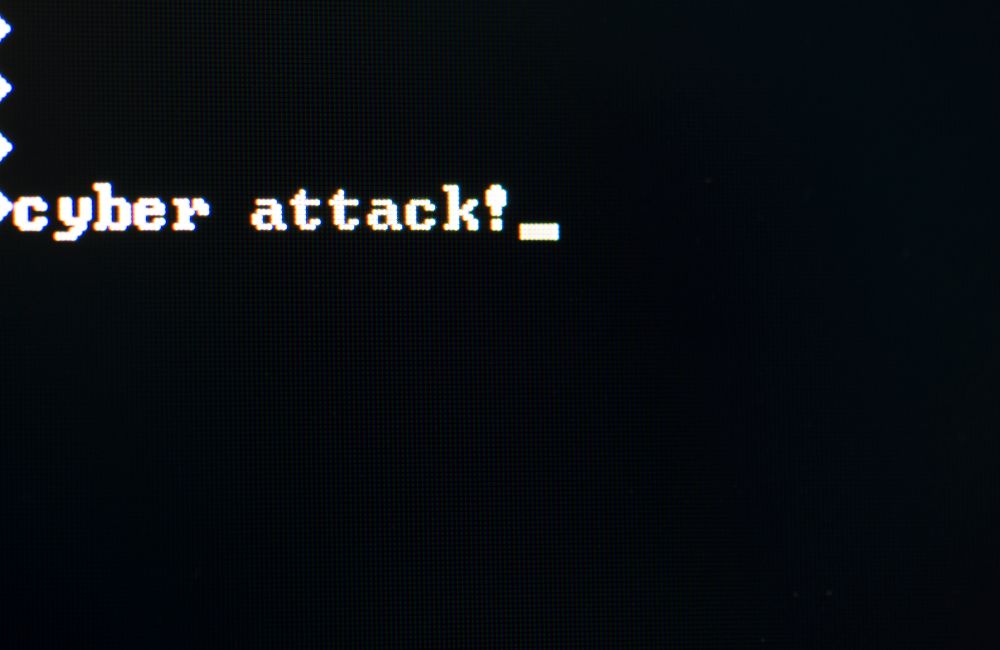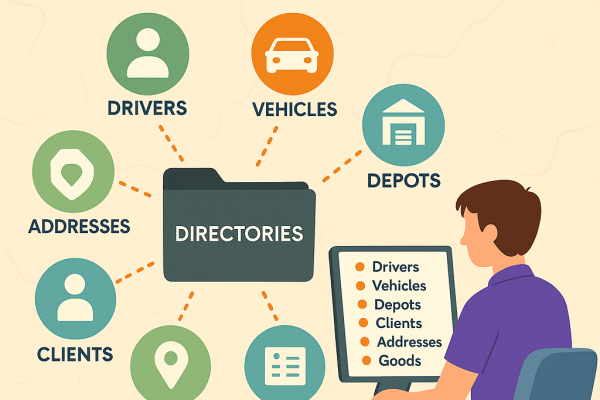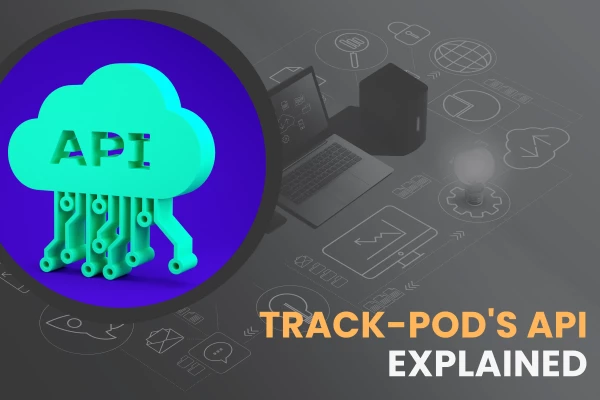10 Steps to Prevent Logistics Cyber Attacks and Protect Your Operations

by
Patrick Chown
January 06, 2023
The logistics industry relies heavily on digital tools and communication infrastructure to streamline operations and improve efficiency. These technologies enable logistics companies to track shipments, communicate with clients and partners, and access important data.
However, this reliance on technology also makes logistics operations vulnerable to cyberattacks, which can have serious consequences for businesses and their clients. This article will explore the cybersecurity concerns facing the logistics industry and discuss strategies for protecting your business from these threats.
The risks of cyber attacks in logistics operations
Cyberattacks can take many forms, such as malware, phishing scams, and ransomware, and can have serious consequences for logistics companies.
Disruption of operations is one potential outcome of a cyberattack, as hackers may access and manipulate data or shut down systems altogether.
This can lead to delays and lost profits, as well as damage to a company's reputation. Additionally, logistics companies handle a range of sensitive data.
- Client information.
- Financial records.
- Proprietary business information.
A successful cyberattack could result in the loss or theft of this data, which could have serious consequences for the company and its clients. For individuals, these risks often raise the question of what is identity theft protection and how it can help safeguard personal details against misuse, fraud, and financial loss.
Financial losses can also occur as a result of cyberattacks, including direct losses like the cost of repairing or replacing damaged systems, or indirect losses due to disrupted operations or lost business.

Cyberattacks on logistics operations can also potentially result in the interception of shipments. For example, if a hacker is able to access the tracking information for a shipment, they may redirect it to an unauthorized location, leading to lost or stolen goods, delays, and damage to the company's reputation.
In addition, cyberattacks can damage the relationships between different parties in a logistics company's supply chain. If a supplier's systems are compromised, it can disrupt the flow of goods and materials, leading to delays and lost business for the logistics company.
This can damage the relationship between the two companies and potentially lead to lost future business.
Protecting your logistics business from cyber attacks
Given the serious risks posed by cyberattacks, it is essential for logistics companies to take steps to protect themselves. Collaborating with a reputable cyber security service provider can strengthen these efforts through professional risk assessments, network monitoring, and real-time threat mitigation. Below are some strategies to consider.
1. Identity and access management (IDP)
Identity and access management (IDP) systems help ensure that only authorized individuals have access to your company’s systems and data.
This can include measures such as requiring employees to use unique login credentials and regularly updating these credentials or implementing a protocol like
OAuth.
2. Role-based access control
Another way to manage access to your systems is through role-based access control. This involves assigning different levels of access to different employees based on their roles within the company.
For example, a manager may have access to more sensitive data and systems than an entry-level employee. This is the thinking behind Track-POD's roles and permissions structure.
Track-POD logistics software offers 10 types of permissions for web users depending on what kind of access and role each staff member has.

3. Least privilege access
Another strategy for protecting your systems is to implement least privilege access, which means that employees only have access to the systems and data they need to do their job. This can help prevent unauthorized access and reduce the risk of a cyberattack. You can also apply physical access control to further strengthen your security posture.
4. Secure physical network infrastructure
It is also important to protect your company’s physical communication network infrastructure, such as ethernet cables and routers. This can include the following measures.
- Securing devices in locked cabinets.
- Regularly updating firmware.
- Using encrypted connections.
For remote access and partner integrations, assigning a secure static ip makes it easier to allowlist trusted endpoints and monitor connections consistently.
5. Multi-factor authentication
In addition to passwords, consider enabling multi-factor authentication for added security. This requires users to provide additional forms of identification, such as a code sent to their phone, before they can access certain accounts or systems. Implementing a privileged user manager can provide an extra layer of security, thus making your logistics operations more resilient to potential risks.
Modern authentication methods like passkeys can further reduce the risk of credential theft by eliminating reliance on traditional passwords altogether.
6. Train employees on cybersecurity
Your employees are a critical line of defense against cyberattacks, so it is important to educate them about the risks and how to protect against them.
This can include security awareness training on how to recognize and avoid phishing scams, how to handle sensitive data, and how to report suspicious activity. Beyond employee training, technical prevention is key to stopping hackers from impersonating your logistics brand. Many organizations use the EasyDMARC DMARC generator to create accurate DNS records that prevent unauthorized senders from using their domain for phishing attacks, ensuring that clients only receive legitimate communications. Using a trusted Mac malware scanner can also help detect and remove potential threats, adding an essential layer of protection to your organization’s cybersecurity measures.
A well trained team is your best defense. Employees should also be aware of their own digital footprint, since exposed personal data can make them easy targets for phishing or social engineering attacks.
7. Invest in cybersecurity software
There are many different types of cybersecurity software available, including antivirus programs, firewalls, and intrusion detection systems. Investing in these tools can help protect your systems and data from cyberattacks.
Using private browsers for Android or iOS can be a great addition to these tools, as they can help protect your online privacy and data by preventing tracking and blocking malicious websites. Additionally, using a trusted VPN service like Mysterium VPN can encrypt your internet traffic, secure communications, and prevent unauthorized access to sensitive logistics data while your employees are online.
8. Regularly update software.
It is important to keep all of your company’s software and systems up to date with the latest patches and updates. These updates often include security fixes, so failing to apply them can leave your business vulnerable to attacks.
9. Back up important data
In the event of a successful cyberattack, it is important to have a backup of your important data stored offsite or in the cloud. Sending backup to Backblaze B2 or another cloud storage platform can help minimize the impact of the attack and make it easier to recover your systems.
10. Work with a cybersecurity partner
For added protection, consider partnering with a Cybersecurity Consulting Company that can help you assess your risks and implement additional security measures.
To further bolster your protection against cyber attacks, earning an ISO 27001 certification with the help of a specialized partner should be among your considerations. It's a globally recognized standard for information security management systems (ISMS).
Working towards this with the help of a certification partner displays your commitment to cybersecurity by implementing best practice methodologies in data protection. Regularly referencing a vulnerability database ensures you stay informed about emerging threats and can proactively address security gaps. This could significantly enhance trust between you and clients, whilst adding another layer of resilience against existing and future digital threats.
11. Use an Application Performance Monitoring tool
Using an application performance monitoring tool can help you protect your systems from cyberattacks. By keeping an eye on the performance and health of your application, you can quickly identify if any incidence occurs. Some APM tools also offer an alerts system, where they alert your IT team in case of any unplanned incident. To further enhance security, consider implementing containerized isolation security, which isolates application components within secure environments. This approach adds an extra layer of protection, making it harder for malicious actors to exploit vulnerabilities and compromise your systems.
In addition you can troubleshoot issues by integrating Real User Monitoring (RUM) into your APM setup. This lets you pinpoint problems that end users are having, but which might not be conspicuous through standard observability implementations. The same benefits apply to security scenarios. Rather than malicious actors being allowed to interfere with your apps undetected, modern tools can spot vulnerabilities proactively.
Strengthening cybersecurity in logistics operations
The digital transformation of the logistics industry makes logistics operations vulnerable to cyberattacks, which can have serious consequences for businesses and their clients.
To protect your company from these threats, it is essential to implement strong passwords, enable two-factor authentication, educate employees on cybersecurity, invest in cybersecurity software, regularly update software, back up important data, and consider working with a cybersecurity partner.
By taking these steps, you can help ensure that your logistics business is protected from the risks of cyberattacks.
About The Author
Patrick Chown
Patrick Chown is the owner and president of network installation company, The Network Installers. The Network Installers specializes in network cabling installation, structured cabling, voice and data, audio/visual, commercial wifi and fiber optic installation for industrial and commercial facilities.







